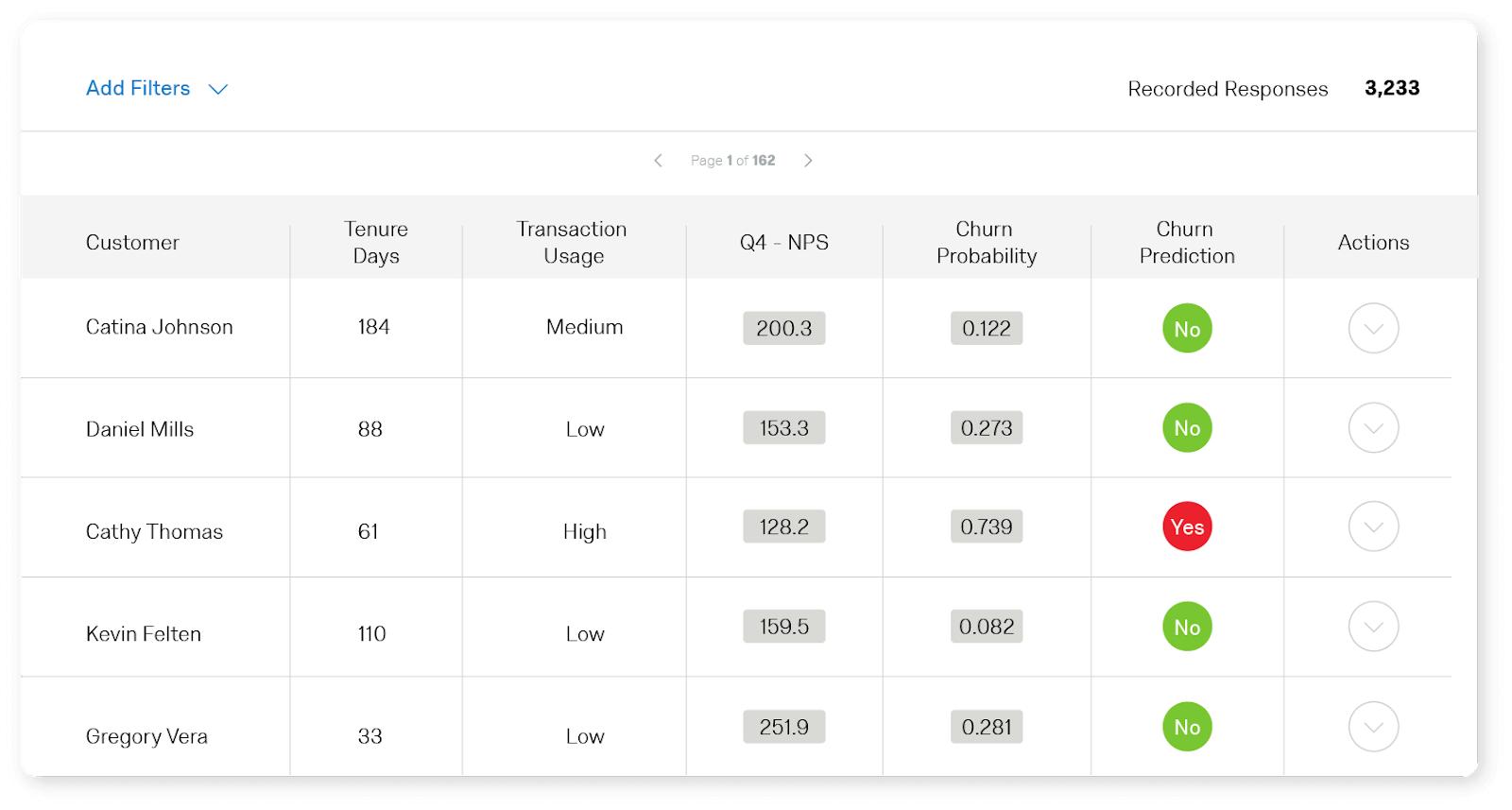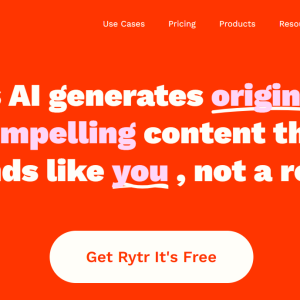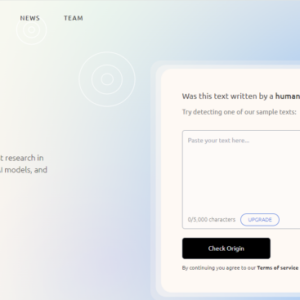Artificial Intelligence (AI) has become a game-changer in the business world, revolutionizing the way companies operate and make decisions. From enhancing customer experiences to streamlining internal processes, AI has proven to be a powerful tool that can significantly boost business performance. However, implementing AI in your business can seem like a daunting task, especially if you are unfamiliar with the technology. In this step-by-step guide, we will walk you through the process of implementing AI in your business, providing you with the necessary knowledge and tools to leverage this transformative technology and stay ahead of the competition.
- 8 Ideas for How to Integrate AI in Digital Marketing
- AI for Marketing: Best Examples of How AI Helps in Advertising
- ChatGPT for Lawyers: How Can This AI Tool Help Improve Your Effectiveness?
- Which Is The Best Next-Gen AI Website Builder?
- Designs.ai Review: Create Amazing Visuals to Wow Your Audience!
Unless you’ve been living under a rock for the last couple years – or at least since the launch of ChatGPT in October 2022 – then you’ve already heard about how artificial intelligence (AI) has become essential for any organization that doesn’t want to get left behind in the dust.
You are viewing: How to Implement AI in Your Business: A Step-by-Step Guide
AI offers a wide range of benefits, from automating repetitive tasks to unlocking actionable insights and delivering personalized customer experiences. However, for many businesses, the first question is: how to implement AI in my business?
In this blog post, we will provide you with a roadmap to successfully implement AI in your business. We’ll also delve into the key benefits that this technology brings to the table and highlight the areas of your business where AI can be most impactful.
Now, let’s dive in and unlock the full potential of AI for your business.
What Are the Benefits of Using AI in Business?
You’ve probably heard this a hundred times in the last month – or hour if you’re on LinkedIn – so at the risk of sounding repetitive, here are the main benefits of AI implementation in your business.
Streamlining and Automating Tasks
Artificial intelligence enables the automation of repetitive tasks, freeing up valuable time and resources that can be redirected to more strategic and complex activities.
Some common tasks that can be turned over to AI are:
- Data entry – such as entering customer information, product orders, and financial data.
- Customer service – such as answering frequently asked questions, providing support for products and services, and resolving complaints.
- Marketing – such as creating and sending email campaigns, managing social media accounts, and tracking website traffic.
- Sales – such as generating leads, qualifying prospects, and scheduling appointments.
- Administrative – such as scheduling meetings, managing calendars, and sending out reminders.
One of the main worries is of AI replacing human capabilities, but rest assured, that’s not happening just yet. Artificial intelligence is certainly capable of augmenting humans, but it is not necessarily replacing them entirely.
AI technologies are designed to perform specific functions based on patterns and algorithms, often with speed and accuracy that surpass human skills in certain domains. However, there are still many areas where human judgment, creativity, empathy, and complex decision-making remain crucial.
Dive Deeper: What Is Marketing Automation: Definition, Benefits & Uses
Personalizing Customer Experience
AI makes it easy for businesses to personalize the customer experience by analyzing customer data and behavior, allowing for targeted recommendations, tailored interactions, and improved customer satisfaction and loyalty:

AI-powered recommendation engines use algorithms to analyze customer preferences, purchase history, browsing patterns, and other relevant data. Based on these insights, brands can provide personalized product recommendations to customers:

For instance, e-commerce platforms can suggest items related to a customer’s previous purchases or items frequently bought together, making the shopping experience more convenient and increasing the likelihood of additional sales.
Dive Deeper: 9 Ways to Deliver the Best Digital Experience to Your Customers
Strengthening Online Security
AI helps reduce cybersecurity threats by employing advanced algorithms to detect anomalies, patterns, and potential breaches in real time, which enhances overall security measures and protects sensitive data.
Real-time anomaly detection is about continuously monitoring network traffic, user behaviors, and system logs in real time:

By employing advanced machine learning algorithms, AI can learn the normal patterns and behaviors of a system or network.
Then, if (or, more realistically, when) any deviation or anomaly is detected, such as unusual login activity, suspicious data transfers, a sudden surge in traffic or an unusual communication pattern, the AI system can quickly flag and investigate the potential security threat.
Dive Deeper:
* How Poor Website Security Negatively Impacts SEO Rankings
* 6 Tips for Securing Your Data from Cyber Attacks as a Remote Worker
Gaining Actionable Insights
AI-driven analytics provide businesses with deeper market research and consumer insights, uncovering patterns, trends, and preferences that can inform decision-making, optimize strategies, and drive business growth.
Artificial intelligence-powered analytics can analyze vast amounts of customer data, demographic information, purchase history, and online behavior to identify distinct market segments.
For instance, an online fashion retailer can use AI-driven analytics to identify specific customer segments, such as “young adults interested in sustainable fashion” or “frequent buyers of athletic wear.” By understanding these segments, the retailer can tailor marketing campaigns, promotions, and product offerings to cater to the unique needs and preferences of each retail segment:

Optimizing Cost Efficiency
By automating processes, improving resource allocation, and optimizing workflows, AI contributes to reducing overall costs for businesses, leading to improved profitability and financial performance.
Here are a few examples:
- Process Automation: AI-powered robotic process automation (RPA) can be implemented to streamline data entry, invoice processing or customer support ticket routing.
For example, a retail company can implement AI-powered chatbots to handle customer inquiries and provide support, reducing the need for additional customer service agents. The company can achieve cost savings by reducing the staffing requirements for its support team while maintaining a high level of customer service.
- Optimized Resource Allocation: AI can analyze data and provide insights to optimize resource allocation, such as inventory management or workforce scheduling.
For instance, a transportation company can leverage AI algorithms to optimize its route planning for delivery drivers. By considering factors such as traffic conditions, customer locations, and delivery time windows, AI can generate optimal routes that minimize fuel consumption, reduce delivery times, and improve overall operational efficiency, resulting in cost savings.
- Workflow Optimization: By leveraging AI-powered process mining techniques, businesses can gain insights into how tasks are performed, identify areas of redundancy or inefficiency, and streamline the workflow for improved efficiency.
For example, a manufacturing company can use AI to analyze production data and identify areas where production bottlenecks occur. By identifying these bottlenecks, the company can optimize the workflow, adjust resource allocation, and streamline the production process, resulting in reduced operational costs and improved productivity.
How AI Can Help Businesses Grow
There are many ways that artificial intelligence can help brands grow, and not every particular business has to use all of them. Here are some of the main areas of a business where AI implementation can be beneficial:
- Customer service (chatbots): AI-powered chatbots can provide instant, 24/7 customer support, handling routine inquiries, resolving common issues, and escalating complex cases to human agents, ensuring efficient and personalized customer interactions.
- Sales and marketing (personalized recommendations): AI can analyze customer data and behavior to deliver personalized product recommendations, tailored marketing campaigns, and targeted advertisements, increasing customer engagement, satisfaction, and conversion rates.
- Supply chain management (demand forecasting): AI algorithms can analyze historical sales data, market trends, and external factors to generate accurate demand forecasts. This enables businesses to optimize inventory levels, reduce stockouts, and improve overall supply chain efficiency.
- Finance (fraud detection): AI algorithms can analyze large volumes of financial data, identifying patterns and anomalies to detect fraudulent activities in real-time. This helps businesses safeguard against financial losses and protect customer data and transactions.
- Manufacturing (process optimization): AI can analyze sensor data from manufacturing equipment to optimize production processes, detect anomalies, and predict maintenance needs. This leads to increased productivity, reduced downtime, and improved overall operational efficiency.
- Human resources (virtual assistants): AI can streamline HR processes, including candidate screening and selection, employee onboarding, performance evaluation, and talent management. It can automate repetitive tasks, provide data-driven insights for decision-making, and facilitate employee engagement through chatbots or virtual assistants.
- Product development and R&D (market analysis): AI can aid in product development by analyzing market trends, customer feedback, and competitor data. It can generate insights for product ideation, design optimization, and predictive analytics for quality control.
How to Implement AI in Your Business
Integrating artificial intelligence in business can be a daunting task, especially if you’re not familiar with the technology.
Just remember that implementing AI is an iterative process, and it’s essential to start with smaller, manageable projects to gain experience and build confidence before scaling up.
Here’s a general roadmap, sectioned into these smaller, manageable steps, to help you get started with implementing AI in your business.
1) Define Your Goals
Before implementing artificial intelligence technology, it’s important to identify your goals. Clearly defining your objectives will help you know where to start.
What do you hope to achieve with AI? It could be improving customer service, product recommendations, process optimization, fraud detection or any other relevant aspect.
When it comes to:
- Improving customer service, AI can be used to create chatbots that can handle customer inquiries and complaints. These chatbots can be programmed to understand natural language and respond to customer queries in a human-like manner.
- Increasing sales, AI can be used to analyze customer data to identify patterns and trends. This data can be used to create personalized marketing campaigns that target specific customer segments.
- Optimizing the supply chain, AI systems can be used to predict demand and optimize inventory levels. By analyzing historical sales data and external factors such as weather and holidays, businesses can accurately forecast demand and adjust their inventory levels accordingly.
You may also like: Best AI Marketing Agency: Top 5 Choices for 2023
2) Identify Suitable Use Cases
Once you’ve defined your goals, the next step is to identify suitable use cases.
Conduct a thorough analysis of your business processes to identify areas where AI can be applied effectively. Look for tasks that are repetitive, time-consuming, data-driven, or require complex decision-making. AI can be applied to a variety of business functions, including marketing, finance, HR, and operations.
Several potential use cases for AI include:
- Marketing, to analyze customer behavior and preferences to create targeted advertising campaigns. By using machine learning algorithms, AI can identify patterns in customer data and use that information to tailor marketing messages to individual customers. This can lead to higher conversion rates and increased revenue for your business.
- Finance, where AI can be used to analyze market trends and make predictions about future performance. It can also be used to automate routine financial tasks, such as processing invoices and reconciling accounts.
- HR, to analyze resumes and job applications with NLP and ML in order to identify the most qualified candidates for open positions.
3) Gather and Prepare Data
The success of artificial intelligence tools is heavily dependent on the quality and quantity of data it receives. Therefore, it’s important to gather and prepare data before you start building AI models.
Data serves as the fuel for AI algorithms, enabling them to learn, make predictions, and provide valuable insights. Here’s why data preparation is necessary for implementing AI tools in marketing:
- Training AI Models: AI models, such as those used for customer segmentation, personalized recommendations, or predictive analytics, require training on relevant data. By gathering and preparing data specific to your marketing objectives, you can train AI models to understand your target audience, their preferences, and their behaviors.
- Accuracy and Quality: AI algorithms rely on accurate and high-quality data to generate reliable insights and make informed marketing decisions. Proper data gathering and preparation ensure that the AI tools receive reliable and relevant information, leading to more accurate predictions and actionable recommendations.
- Customization and Personalization: Every business has unique marketing requirements and customer profiles. By gathering and preparing data specific to your business, you can customize AI tools to align with your marketing goals and deliver personalized experiences to your customers.
- Data-driven Decision Making: AI tools are designed to analyze data and provide insights that can drive marketing strategies. Without appropriate data gathering and preparation, AI tools may not have access to the necessary information, hindering their ability to provide accurate recommendations and insights.
- Compliance and Privacy: When implementing AI tools for marketing, it’s important to consider data compliance and privacy regulations. By properly gathering and preparing data, you can ensure that you comply with relevant laws and regulations such as GDPR and CCPA to protect the privacy of your customers.
As a last point, you should consider how you will continue to collect and update data to improve your AI models over time. This might be setting up processes to collect new data on an ongoing basis, or using machine learning algorithms to automatically collect and label data.
Dive Deeper:
* 12 Ways to Use Machine Learning in Digital Marketing
* The Email Marketer’s 4-Step Guide to GDPR Compliance
* What Is a Customer Data Platform (CDP) & Why Do You Need One ASAP?
4) Build an AI Team or Partner with Experts
Depending on your resources and expertise, you can either establish an in-house AI team or collaborate with external AI experts or consulting firms.
An AI consultancy firm is a company that provides consulting services on artificial intelligence and helps businesses implement AI based solutions, develop AI strategies, and train AI models. The firm should have a team of data scientists, machine learning engineers, and domain experts who can understand your business needs.
- Partnering with an AI consultancy firm can be a great option for organizations that are new to AI. These firms specialize in helping businesses identify areas where AI can be implemented and building custom solutions that meet their specific needs. They can also provide training and support to help your team get up to speed with the technology.
- Partnering with an AI platform provider is another idea If you’re looking for a more hands-off approach. These companies offer pre-built AI solutions that can be customized to fit your needs. They typically provide ongoing support and maintenance, so you don’t have to worry about managing the technology yourself.
- Partnering with a specialist vendor in your industry is another idea to consider. For example, if you’re in the healthcare industry, you may want to partner with a vendor that specializes in AI technologies specifically for healthcare. These vendors have a deep understanding of your industry and can provide tailored solutions that address your specific needs.
Regardless of which option you choose, it’s important to do your research and choose a partner that has a proven track record of success. Look for case studies and customer testimonials to get a sense of their expertise and experience.
Dive Deeper: 10 Easy Ways to Get Started with Marketing AI (Artificial Intelligence)
5) Select AI Tools and Technologies
Now that you’ve evaluated your use cases, data requirements, and technical expertise, choose the AI tools, frameworks, and technologies that best suit your business requirements. If you’re working with an AI consultancy firm, they will work with you on that.
See more : Speechify Review: Can This Text-to-Speech Reader Really Improve Your Productivity?
There are various options available to help solve business problems, including:
Copywriting:
- Conversion.ai
- ChatGPT
- Byword
- Jasper
Copy Editing:
- Grammarly
- Hemingway
Plagiarism Checker:
- OriginalityAI
- AI Detector
- GPTZero
Email Marketing:
- Mailchimp
- Constant Contact
- HubSpot
- GetResponse
SEO:
- Semrush
- Ahrefs
- Moz
- SpyFu
- Long Tail Pro
Marketing:
- Marketo
- HubSpot
- Acquisio
Social Media:
- Socialbakers
- Hootsuite
- Buffer
- Sprout Social
Design & Image Creation:
- Canva
- Midjourney
- DALL-E
Data Analytics:
- Google Analytics
- Adobe Analytics
- Mixpanel
- Kissmetrics
CRO (Conversion Rate Optimization):
- Optimizely
- CrazyEgg
- Hotjar
- AB Tasty
Sales:
- Salesforce Einstein
- HubSpot Sales Hub
- Pipedrive
Customer Support:
- Zendesk
- Freshdesk
- HubSpot CRM
- Salesforce
- Intercom
HR:
- Workday
- HireVue
- Workable
- ThriveMap
AI Assistant:
- Bing
- NotionAI
- Bard
- ChatGPT
When selecting AI technologies, it is important to consider the specific needs of your business.
Dive Deeper: 20 AI Tools to Scale Your Marketing and Improve Productivity
6) Monitor and Evaluate Performance
Once you’ve chosen a few AI tools to start with, have started integrating AI into your business, and have gotten the hang of them, you’ll want to continuously monitor their performance to evaluate their impact on your business goals. Collect feedback from users, measure key performance indicators (KPIs), and make necessary adjustments or improvements to optimize AI performance.
7) Ensure Ethical and Responsible AI
AI has the potential to transform business operations and improve customer experiences, but it also raises important ethical and social considerations. As such, it’s critical to ensure that your AI methods are ethical and responsible. This includes considering issues such as privacy, bias, and transparency, as well as complying with relevant laws and regulations.
8) Foster a Culture of AI Adoption
Finally, to get the most out of your AI tools, it’s important to foster a culture of AI adoption within your business. This means educating and training employees on the benefits and limitations of AI, encouraging experimentation and innovation, and creating a supportive and collaborative environment.
As AI continues to evolve, staying up to date and adapting to new trends and technologies will be key to staying ahead of the competition.
Dive Deeper: What Is Web 3.0? The Future of the Internet
Last Word on AI for Business
Implementing AI tools in your business can be a complex process, but following these steps can help give you the competitive advantage – for now.
By defining your goals, identifying suitable use cases, gathering and preparing data, building a team or partnering with experts, selecting appropriate tools, implementing solutions, monitoring performance, ensuring ethical AI, and fostering a culture of adoption, you can leverage the power of AI to drive growth and innovation in your business.
If you’re ready to implement AI into your business, Single Grain’s marketing experts can help.👇
That’s a wrap on “How to Implement AI in Your Business: A Step-by-Step Guide” We hope you’ve found a trove of useful insights and fresh perspectives. Your opinions and ideas matter to us—join the conversation below and share your take! Hungry for more tech insights? Dive into our diverse collection of articles where innovation meets practicality. Discover More AI Softwares.
Stay in the loop with the latest in AI and tech – your journey into the digital future continues at apkguild.com.
#Implement #Business #StepbyStep #Guide
Source: https://apkguild.com
Category: AI





